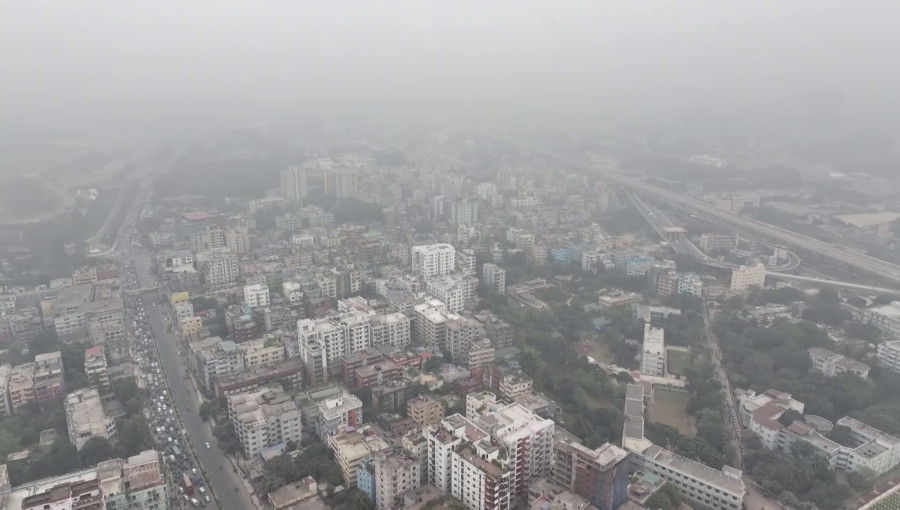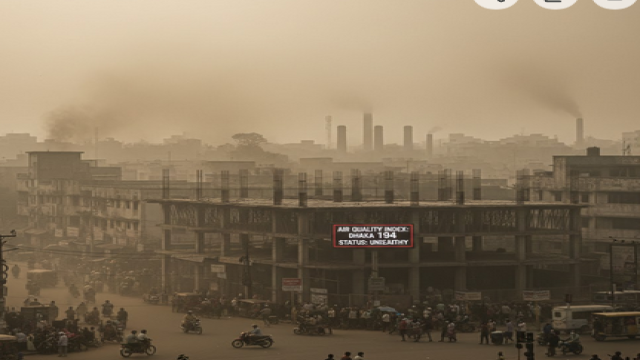Dhaka, Feb 3, (V7N) – Bangladesh’s capital, Dhaka, recorded the worst air quality in the world this morning with an AQI score of 243 at 8:50 AM, classifying it as "very unhealthy" and posing severe health risks.
According to the Air Quality Index (AQI), a score between 201-300 is considered ‘very unhealthy,’ meaning the general public may experience health effects, while sensitive individuals could face serious complications.
Global Air Pollution Ranking
Dhaka topped the global list of polluted cities, followed by:
- Yangon, Myanmar – AQI 226
- Sarajevo, Bosnia & Herzegovina – AQI 189
- Lahore, Pakistan – AQI 182
Air Pollution in Dhaka: A Recurring Crisis
Dhaka has long struggled with severe air pollution, particularly worsening during winter due to increased construction, industrial emissions, and weather conditions that trap pollutants close to the ground. The monsoon season usually brings temporary relief.
The Bangladesh AQI measures pollution based on five key pollutants:
- PM10 & PM2.5 (particulate matter)
- NO₂ (Nitrogen dioxide)
- CO (Carbon monoxide)
- SO₂ (Sulfur dioxide)
- Ozone (O₃)
Health & Regulatory Measures
Prolonged exposure to such pollution levels can increase the risk of stroke, heart disease, lung cancer, and respiratory infections, according to the World Health Organization (WHO).
In response, mobile court drives have been conducted to curb pollution, imposing fines amounting to Tk 21.97 lakh on violators.
Despite efforts, environmentalists warn that reducing air pollution is a long-term challenge requiring stricter policies and improved urban planning.
END/CLM/RH/































Comment: